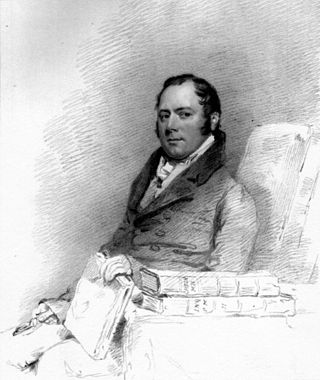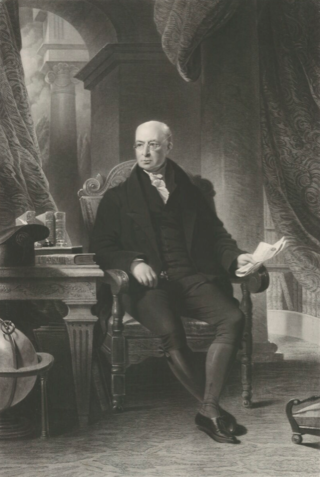Related Research Articles

Cheshire is a ceremonial county in North West England. It is bordered by Merseyside to the north-west, Greater Manchester to the north-east, Derbyshire to the east, Staffordshire to the south-east, and Shropshire to the south; to the west it is bordered by the Welsh counties of Flintshire and Wrexham, and has a short coastline on the Dee Estuary. Warrington is the largest settlement, and the city of Chester is the county town.

Macclesfield is a market town and civil parish in the unitary authority of Cheshire East, Cheshire, England. It is sited on the River Bollin and the edge of the Cheshire Plain, with Macclesfield Forest to its east; the town lies 16 miles (26 km) south of Manchester and 38 miles (61 km) east of Chester.

Hollingworth is a village in the Tameside district, in Greater Manchester, England. It is about 11 miles (19 km) east of Manchester on the Derbyshire border near Glossop. Historically part of Cheshire, it gave its name to a family who owned much of the surrounding area from before the time of the Norman conquest.

The history of Cheshire can be traced back to the Hoxnian Interglacial, between 400,000 and 380,000 years BP. Primitive tools that date to that period have been found. Stone Age remains have been found showing more permanent habitation during the Neolithic period, and by the Iron Age the area is known to have been occupied by the Celtic Cornovii tribe and possibly the Deceangli.

Lancashire is a county of England, in the northwest of the country. The county did not exist in 1086, for the Domesday Book, and was apparently first created in 1182, making it one of the youngest of the traditional counties.

The Diocese of Chester is a Church of England diocese in the Province of York covering the pre-1974 county of Cheshire and therefore including the Wirral and parts of Stockport, Trafford and Tameside.

Warton is a village, civil parish and electoral ward in the Lancaster district of Lancashire, England. The village is close to the boundary with Cumbria, and approximately 1.5 miles (2.4 km) north of Carnforth, which was originally part of the parish of Warton. The village had a population of 2,315 at the 2001 census, and 2,360 at the 2011 census. The parish covers an area in excess of 11,000 acres (45 km2) and is predominantly rural.

George Ormerod was an English antiquary and historian. Among his writings was a major county history of Cheshire, in North West England.

St Michael and All Angels Church stands on Warhill overlooking the village of Mottram in Longdendale, Greater Manchester, England. The church is recorded in the National Heritage List for England as a designated Grade II* listed building. It is an active Anglican parish church in the diocese of Chester, the archdeaconry of Macclesfield and the deanery of Mottram.
The Chetham Society "for the publication of remains historic and literary connected with the Palatine Counties of Lancaster and Chester" is a text publication society and registered charity established on 23 March 1843.
The timeline of Cheshire history shows significant events in the history of the English county of Cheshire.

Robert de Gresle (1174–1230) was a Lord of the manor of Manchester, the first of his family to take up residence in Manchester. Initially the Gresle family, were absentee landlords, living elsewhere, with Stewards to represent them locally.

John Parsons Earwaker (1847–1895) was an English antiquary.
James Tait, was an English medieval historian. With Thomas Frederick Tout, he was the second major figure in the "Manchester School of History".
In the early fourteenth century, tensions between villagers from Darnhall and Over, Cheshire, and their feudal lord, the Abbot of Vale Royal Abbey, erupted into violence over whether they had villein—that is, servile—status. The villagers argued not, while the Abbey believed it was due the villagers' feudal service.
The Record Society of Lancashire and Cheshire is a text publication society that publishes historical documents relating to the traditional counties of Lancashire and Cheshire. It became a registered charity for public education in the history of the two counties in 1970.

The Battle of Winnington Bridge, often described as the last battle of the English Civil War, took place on 19 August 1659 during Booth's Uprising, a Royalist rebellion in north-west England and Wales.

William Robert Hay (1761–1839) was a British barrister, cleric and magistrate, one of the Manchester group associated with the Peterloo Massacre.
George Henry Tupling was a British historian who was Vice-President of the Chetham Society and President and Editor of the Lancashire and Cheshire Antiquarian Society.
References
- ↑ Local Population Studies (34-37 ed.). 1985. p. 59.
- ↑ The Linguist: Journal of the Institute of Linguists. The Institute. 2001.
- ↑ Chester Archaeological Society (2005). Journal of the Chester Archaeological Society. John Sherratt. doi:10.5284/1070367. ISBN 978-0-9542563-4-0.
- 1 2 Brendan Smith (20 June 2013). Crisis and Survival in Late Medieval Ireland: The English of Louth and Their Neighbours, 1330-1450. Oxford: Oxford University Press. p. 2. ISBN 978-0-19-166471-7.
- ↑ "Book Reviews". The Chester Antiquity, Spring 2007.
- ↑ "Uncovering old crimes at St. George's Hall.". Insight, issue 3 April 2005.
- ↑ Hey, David (9 January 2014). A History of the Peak District Moors. Wharncliffe. pp. 50–. ISBN 978-1-4738-3196-4.
- ↑ "Contact and Exchange in Later Medieval Europe: Essays in Honour of Malcolm Vale" ed. by Hannah Skoda, Patrick Lantschner, and R. I. J. Shaw (review) Paul Dingman Journal of Interdisciplinary History Volume 44, Number 2, Autumn 2013
- ↑ "Was Edward the Black Prince really a nasty piece of work?". BBC News.
- ↑ McKisack, May (1963). The Fourteenth Century, 1307–1399. Oxford History of England. Oxford.
{{cite book}}: CS1 maint: location missing publisher (link) - ↑ Albion. Appalachian State University. 1984.
- ↑ Andrew Tonkinson, Macclesfield in the Later Fourteenth Century: Communities of Town and Forrest (Chetham Society, 1999)
- ↑ Private Eye, no. 1324, 5–18 October 2012 (Pressdram Ltd, 2012)
- ↑ Margeson, James (2 April 2013). "Whistleblower loses fellowship over Facebook comments". The Sphinx. Retrieved 30 July 2016.
- ↑ Eleftheriou-Smith, Loulla-Mae (14 September 2015). "Historian understood to have found first use of word f*** in 1310 English court case" . Independent. Archived from the original on 25 May 2022. Retrieved 30 July 2016.
- ↑ Gosden, Emily (13 September 2015). "Earliest use of f-word discovered in court records from 1310". Daily Telegraph . Retrieved 30 July 2015.
- ↑ Booth, Paul (2015). "An early fourteenth-century use of the F-word in Cheshire, 1310–11". Transactions of the Historic Society of Lancashire and Cheshire. 164: 99–102. doi:10.3828/transactions.164.9.